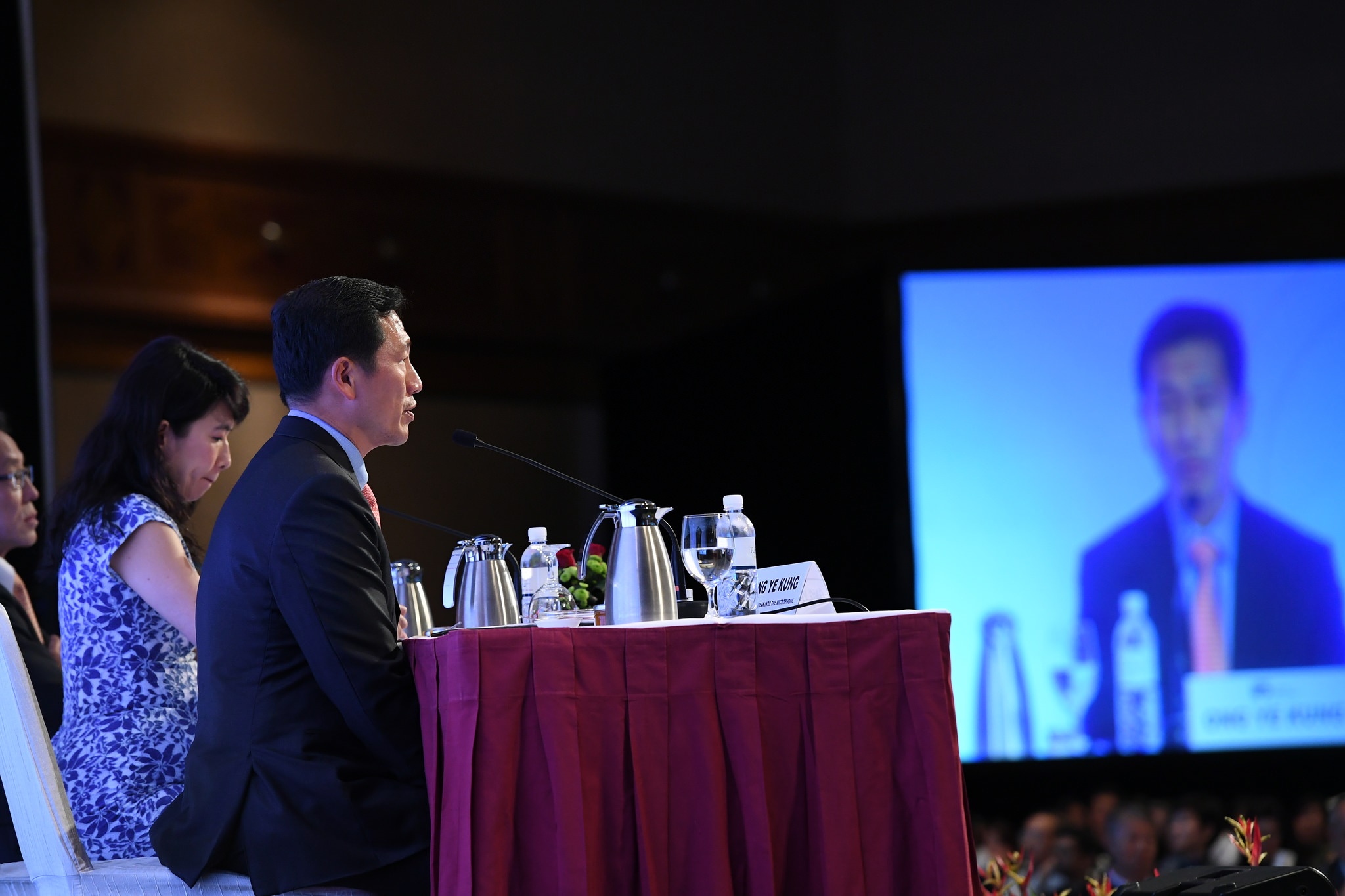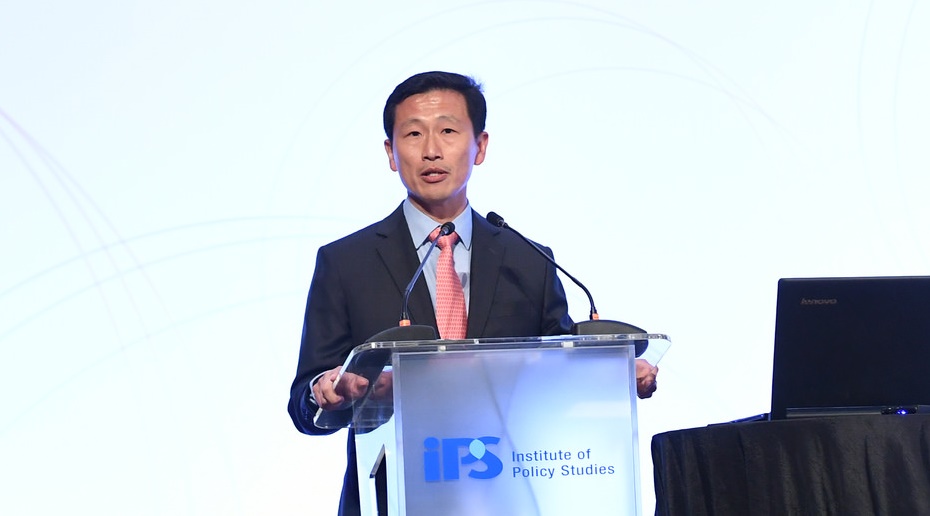"What if Singapore becomes a two or multi-party system?"
This was the elephant-in-the-room/ what-if question that Ong Ye Kung, Minister for Education (Higher Education and Skills), was asked to address at think tank Institute of Policy Studies' flagship conference Singapore Perspectives on Jan. 23.
It was the first time Ong headlined IPS' flagship annual conference, following the footsteps of Finance Minister Heng Swee Keat (2014 and 2016), Minister Chan Chun Sing (2015) and Prime Minister Lee Hsien Loong (2013).
Ong gingerly tip-toed around the question but he did not avoid stating his preference -- a) one-party system or b) two-party system.
 Source: Institute of Policy Studies.
Source: Institute of Policy Studies.
Here are three ways how Ong tackled the question:
First, he offered a personal experience of a two-party system.
"After GE2011, when the Workers' Party won Aljunied, I found myself becoming the opposition party in the GRC. Then, there are groups which will invite me as guest-of-honour for their functions, and others that will invite the Workers' Party MP. Most will invite both, and both will turn up. I got the feeling the guests enjoyed watching the jostling".
So he acknowledged the wishes of some Singaporeans in their clamour for political diversity.
Second, Ong pointed out the long term risks for Singapore if Singapore has a multi-party system.
"50 years from now, if we have a multi-party system, what will define the key political difference between parties? What is the partisan line? Is it over the extent to which we should subsidise public services, healthcare and social assistance? If that is so, it may well be something we can manage.
What if it is over something more sinister that divide Singapore by race, language or religion? As we all know politics, race and religion is a toxic mix."
So what he is implying is that the key difference lie not with the differences in the colour (white or blue) of the political parties but the potential differences in primordial faultlines.
Thirdly, Ong provided an intellectual justification (which incidentally offers a faint hope for opposition parties).
— IPS (@IPS_sg) January 23, 2017
"[O]ur equilibrium as a small country may well be a single party system. The party can be PAP today, but another party in the future -- so long it is the most capable at that time.
The reason is geographic. Because between Singaporeans living in Changi and Jurong, their concerns and views on national issues may be somewhat different, but nothing like people living in Alaska or New York City, Jakarta or the westernmost of Indonesia. For big countries, geographical separation translates into different lifestyles, outlook, values and political affinities...
The single party in the case of Singapore, therefore, is not a prescription, but the most likely outcome of choice -- a result of free and fair elections. It is not different from Massachusetts being dominated by Democrats for long periods, or Scotland dominated by Labour and until recently Scottish National Party (SNP). Smallness and concentration often come together."
Finally, Ong gave a soundbite that shines a light on the internal diversity of the ruling People's Action Party (PAP) party and how it can continue to stay relevant to Singapore in the future:
"The challenge of PAP is how we can be as pluralistic a party as possible. A party of all colours - take in everyone with different views...
There are many PAPs in a way. You have the PAP of PM Lee Hsien Loong. You can also have the PAP of DPM Tharman. You can have the PAP of Louis Ng (famous for his animal rights advocacy), of Denise Phua (known for her work with special needs children), of Patrick Tay (prominent for union issues) or Halimah Yacob. Everyone with a different bent, different objectives they want to achieve and it must be broad enough a party to take it all of them".
What many Singaporeans hope for in the future is that such internal differences can be institutionalized and formalised publicly, rather than personalised internally perhaps.
At least Ong, as he quipped, did not "make this a boring discussion by insisting that we are already a multi-party system since many parties participate in our general elections".
And that's a good first step.
If you like what you read, follow us on Facebook and Twitter to get the latest updates.
If you like what you read, follow us on Facebook, Instagram, Twitter and Telegram to get the latest updates.
